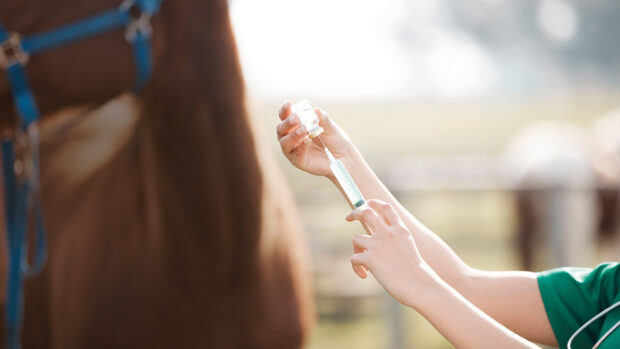Stronger equine anti-doping rules in British racing have now come into force.
The new rules include a zero-tolerance policy for anabolic steroids, stating that no horse should ever be administered an anabolic steroid for as long as it is involved in racing — with no exceptions.
The rules came in yesterday (2 March), after an extensive period of development. They were due to be implemented on 1 January, but the new policy — which was announced June to improve integrity in racing — needed “further clarification on certain elements”, according to the British Horseracing Authority (BHA).
A comprehensive guide has also been distributed.
The move comes after two high-profile steroids cases in 2013, one involving Godolphin trainer Mahmood al Zarooni and the other Gerard Butler.
“Following the events of 2013 it was essential that the BHA ensured that British Racing would remain at the forefront of a critical topic for not only Racing but all modern sports. The enhanced, zero-tolerance Rules represent exactly that,” said Nick Rust, chief executive of the BHA.
“There is no current evidence that the use of anabolic steroids or other similar substances is endemic in British racing. We showed in 2013 that when it does take place we are able to detect it and act on it. But we must never be complacent.”
The policy includes that a horse must never be administered with an anabolic steroid at any time, from birth to retirement; greater powers for BHA in terms of access for testing registered horses; the requirement for horses to be registered from a younger age and for BHA to be aware of their whereabouts at all times; a more stringent 14 month stand-down period for horses found to have been administered with anabolic steroids; and greater controls on horses running in Britain from international jurisdictions.
Jamie Stier, director of raceday operations and regulation for BHA, added: “The new rules mean that there are extended responsibilities for owners, trainers and breeders to ensure that they comply with the zero-tolerance policy. However, we have taken care to ensure that these are not overly onerous and that the correct communication and support is in place.
“Similarly, connections of international runners now have extra responsibility when running horses in Britain. We do not anticipate this being a major barrier to international horses competing here and we discussed the policy and rules at length with the relevant racecourses to ensure their support of the strategy before it was published. It was agreed by all that it was a necessary step to ensure a level playing field at our highest profile events.”
In the longer term, hair sampling will form an important part of the BHA’s testing procedures which underpin the new rules, alongside existing blood and urine tests.
Hair sampling allows for the detection of substances administered over a much longer period than blood and urine. It has been used on an occasional basis for some time and this will continue to be the case, however as the rules mature over time this sampling method will form a more regular part of the BHA’s testing procedures.




